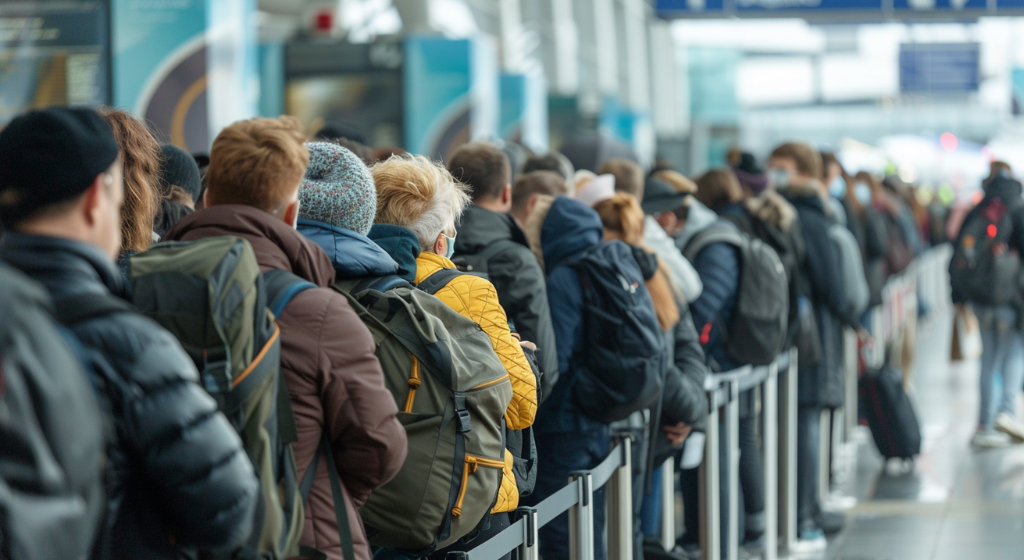
AI systems are enhancing various technologies such as analyzing facial cues, fingerprints, and faces, and even distinguishing between humans and wildlife, making autonomous decisions on potential threats and appropriate actions for authorities. (Source: Image by RR)
AI Technologies Improve Border Security while Raising Ethical Questions about Privacy
The end of the pandemic has led to a surge in immigration demands in the United States, and an increase in Americans resuming international travel. This is evidenced by a nearly 10 percent year-over-year increase in passport applications in 2023, with over 24 million people applying for U.S. passports last year, marking an all-time high and a 77.5 percent increase over the last decade. Despite this surge, the passport application process remains slow and complex, prompting innovative solutions such as HelloGov AI, an AI-powered passport processing platform developed by Adam Boalt and Steven Fox. This platform uses proprietary AI technology to vet applications for first-time approval and offers a marketplace of vetted couriers, giving users more control over their application process.
AI is also transforming border control in the United States and the European Union, creating “smart borders” that utilize AI technology to analyze facial cues, fingerprints, and even distinguish between humans and wildlife in remote areas. These advancements aim to enhance border security by using computers to identify potential threats and determine appropriate actions. According to a story in inc.com, these technologies raise significant privacy concerns, as seen with the implementation of facial recognition in airports like Dubai’s “smart tunnel,” which scans travelers’ faces and eyes for quick passage without passports. The extensive use of AI for surveillance, particularly in countries like China, further amplifies concerns about the potential for permanent surveillance measures and the control over personal data collected by these systems.
The U.S. Department of State acknowledges these ethical concerns and has proposed new regulations to protect sensitive customer data and prevent the monopolization of the passport processing industry. Currently, a few dominant companies lease or buy spots from smaller couriers or create multiple entities under one umbrella, compromising customer data and hindering new businesses from competing fairly. The proposed regulations aim to decentralize the industry, enhancing data protection and providing smaller businesses and new couriers with fair opportunities to enter the market.
Overall, the integration of AI into travel-related processes, from passport applications to border control, holds the potential to significantly improve efficiency and security. However, it also necessitates careful consideration of privacy and ethical implications to ensure the protection of personal data and fair market competition. As AI continues to evolve and become more integrated into these systems, ongoing efforts to address these concerns will be crucial in balancing technological advancement with the protection of individual rights and market fairness.
read more at inc.com







Leave A Comment